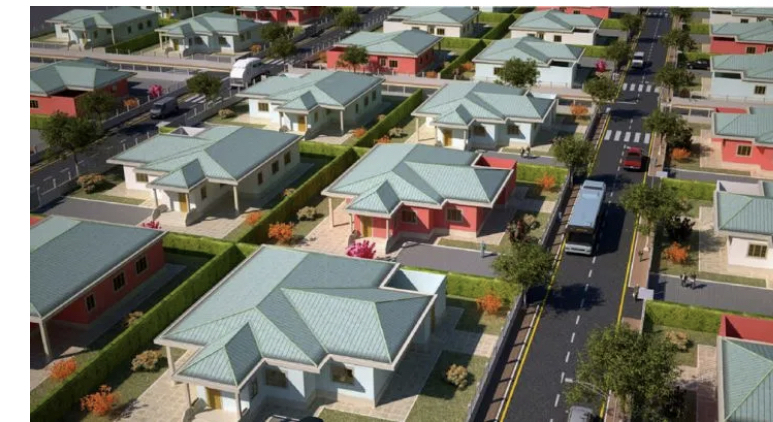Renewal of existing structures or settlements, data-based research and access to housing finance are top of the various approaches offered by experts as solutions to urban housing in Nigeria.
Others are regeneration which involves pulling down and redeveloping old and decaying structures in a given settlement, adopting new building technology, designing and developing local building materials.
The experts who spoke at the ‘Concrete Idea’ webinar hosted by Lafarge Africa in Lagos also suggested gentrification which is a process of neighbourhood change that includes the economic and demographic change in a historically disinvested neighbourhood by means of real estate investment leading to new higher-income residents moving in.
READ ALSO: Lafarge Africa restates commitment to investing in Nigeria
Concrete Ideas is Lafarge Africa’s quarterly webinar already in its third edition. It is a platform for deliberation on issues, policies and developments shaping Nigeria’s construction, infrastructure and housing sectors. The theme of this edition was ‘New Solutions for Nigeria’s Urban Housing’.
Works and Housing Minister, Babatunde Fashola, who was Special Guest of Honour, elevated discussions at the webinar with a curious opener in which he debunked claims that Nigeria has 17 or 22 million housing units deficit, insisting that there was nothing like housing deficit in Nigeria.
READ ALSO: FG Set To Tackle Affordable Housing With New Portal
The housing demand-supply gap in Nigeria is currently estimated at 22 million units. As of 2017, it was 17 million units. These ‘assumptions’ were based on the number of households in Nigeria which is estimated at 45 million at the moment. In 2017, it was 35 million.
But Fashola stressed that these figures were baseless because, according to him, “if that analysis is correct and 17 or 22 million is the deficit, it means that half of Nigeria is homeless. That doesn’t stand up to logic, and there is no data to back up such claims.”
The minister reasoned that whatever there was as a housing deficit was an urban problem and to solve that problem which speaks to the theme of the conference, he said, there should be data-based research to be supported by both fiscal and monetary policies on the part of the government.
READ ALSO: FG begins process for concession of 12 highways
“While the research should find out how many empty, unused and unoccupied houses we have and the demography that needs housing and the house-types, government policy should be used to strengthen housing by lowering the interest rate on housing finance,” he said.
“What government can do to strengthen the housing sector is to use fiscal and monetary policies to bring down the rates – interest and lending rates. This is the conversation I am having with my colleague, the Minister of Finance Budget and National Planning,” he revealed.
The minister canvassed a change in building method and product offering, urging housing developers to carry out extensive research to know what the market needs. “Those that need housing now are the young ones who don’t need large houses. What they need are small apartments,” he noted.
He disclosed that his ministry was working on state parliaments and attorneys general to encourage them to come up with legislation that will outlaw advanced rent payments in the urban centres.
“This is to make for housing accessibility and affordability. If you demand three years rent from a worker who is earning a monthly salary, you are making housing inaccessible and unaffordable to him because affordability is not what you pay but how you pay it,” Fashola said.
Sonny Echono, president of, Nigerian Institute of Architects (NIA), stated that to address the problem of urban housing, there is a need for mass housing which is difficult because of the strong attachment to the land. He added that there was a need for access to cheap funding and an effective housing market.
Echono advised on targeting housing development as against political housing in which houses are built for political reasons without consideration for a proper location or who should live in those houses.
Ayo Teriba, CEO, Economic Associates, underscored the importance of urban housing in relation to economic development, noting that people move to urban areas because of access to amenities, especially transportation.
He noted that there were numerous abandoned government properties that could be redeveloped as part of the solution to urban housing. “Government should redevelop these abandoned properties and earn income that could be a significant part of the national budget. It could also encourage private developers to acquire those properties for redevelopment that solves housing and economic problems,” he said.
For Jumoke Adegunle, Head of Mortar Operations at Lafarge, the government needs to be creative and innovative in its approach to urban housing. Government should also create enabling environment for private sector participation, just as local building materials production should be encouraged.
Source: Business Day





